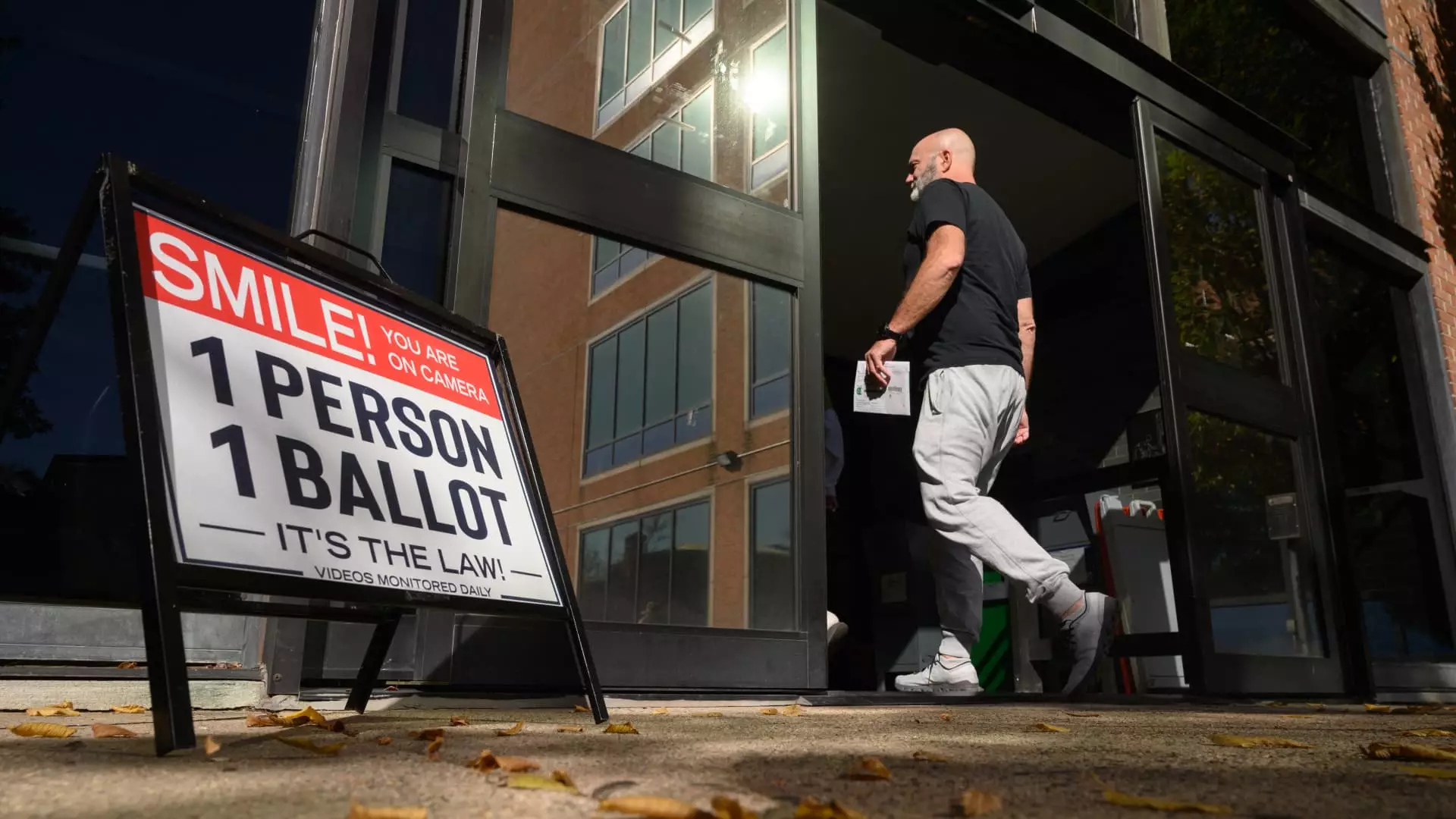The recent ruling by the Supreme Court regarding mail-in ballots in Pennsylvania marks a significant moment in the ongoing debate over voting rights and election integrity in the United States. On a day that could have resulted in a substantial win for Republican interests, the justices opted to uphold a lower court’s decision allowing voters to cast provisional ballots when their mailed ballots were flagged as potentially defective. This ruling is emblematic of the broader national discourse surrounding election laws, voter accessibility, and the partisan interpretations that often accompany them.
Context of the Case
To understand the implications of this ruling, one must consider the brewing tensions leading up to the decision. The case centered on complaints from two voters in Butler County, Pennsylvania, whose mail-in ballots were disqualified due to procedural issues. They were subsequently informed that, though their initial submissions were doomed to non-counting, they could exercise their voting rights by casting provisional ballots in-person. This judicial interpretation endorsed by the Pennsylvania Supreme Court posed an uphill challenge for Republican officials who argued that state law required any faulty ballots to be dismissed without recourse for the voters involved.
The case reached the Supreme Court after the Republican National Committee (RNC) escalated the matter, contending that allowing specific shortcomings in mail-in ballots would set a dangerous precedent. They argued that the integrity of the election process mandated stricter adherence to existing laws. However, the Supreme Court’s decision, supported by conservative members such as Justices Alito, Thomas, and Gorsuch, highlighted a perceived prioritization of voter access amid procedural disputes over strict legalism.
This decision underscores a wider legal discourse on boundaries and responsibilities associated with electoral procedures. The Supreme Court’s ruling has not definitively closed the book on the issue; instead, it complicates the landscape for future electoral challenges. With an impending 2024 general election, uncertainties surrounding absentee and mail-in voting continue to generate critical analyses of the interplay between state law and constitutional mandates for elections.
The concern raised by Republicans over the courts’ encroachment on legislative authority also taps into a deeper constitutional question that has resurfaced in recent years. The “independent state legislature” theory raises alarms over who truly holds the authority to determine election regulations. Several Republican narratives from the 2020 election continue to echo in this ongoing debate, suggesting a deep interest in curbing perceived judicial overreach while reinforcing partisan interests at the ballot box.
Consequences of Potential Future Litigation
Should this issue re-enter the courts, it will likely remain a contentious battleground. As states like Pennsylvania are pivotal in national elections, how mail-in ballots are treated could have far-reaching consequences, particularly if contests are closely decided. The potential for thousands of ballots to be impacted creates an urgent context for further litigation, especially as both parties gear up for a polarizing election cycle.
Republicans have already initiated various lawsuits across critical swing states in anticipation of the upcoming elections, propelled by unfounded allegations of widespread voter fraud. The implications of these challenges could fundamentally alter the voting experience for many Americans, entrenching a narrative of division rather than cooperation in electoral practices.
The ruling in Pennsylvania not only raised questions about mail-in voting but also exposed the chasms that divide American society when it comes to the heels of democracy. With claims of fraud and mishandling consistently utilized by some factions to rally their base, the political ramifications can serve to alienate constituents rather than foster a healthy, participatory democratic process.
In a time rife with uncertainty brought about by the remnants of a divisive 2020 election, the decisions made today could have lasting implications on the future of American governance. The Supreme Court has indicated a complex relationship with rules governing elections, navigating between legal fidelity and the practicalities of enabling citizens to exercise their right to vote without unnecessary barriers.
As 2024 looms closer, observers of the political landscape and potential voters alike must remain vigilant as to how the evolving narrative surrounding mail-in ballots and voter rights shapes electoral processes in an increasingly polarized environment. The Supreme Court’s recent ruling is just one of many defining moments that will shape the course of American democracy in the years to come.


Leave a Reply